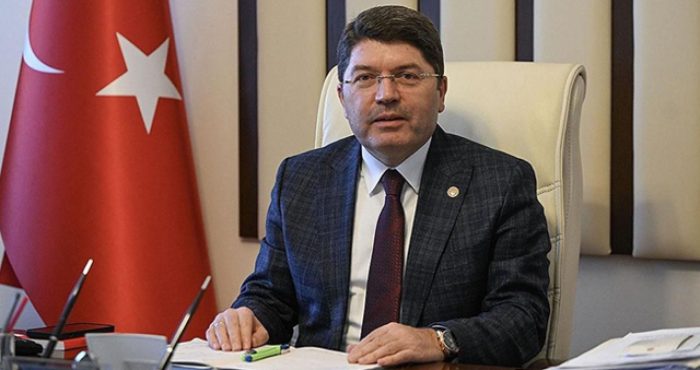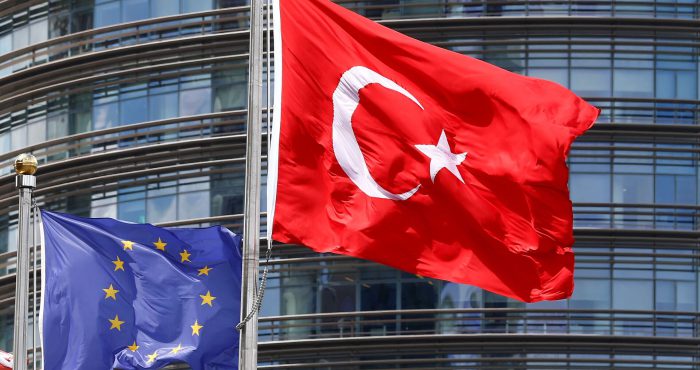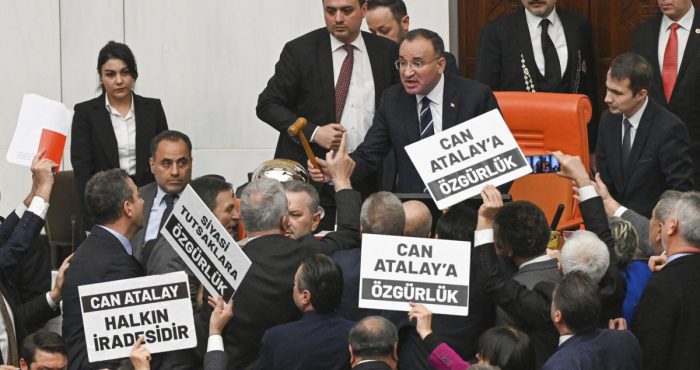In the “Judicial Reform Strategy 2019” document made public in 2019, the “Protection of Fundamental Rights and Freedoms” was determined as the highest priority goal. And Goal 1.1 was formulated as follows:
“The legislation will be reviewed and be amended, and revised as required for enhancement of standards relating to rights and freedoms.” And out of the activities to be conducted for the achievement of that goal, the heading was: (a) “Legislation and practices relating to the freedom of expression will be analyzed, and new actions will be taken for further expansion of the areas of rights and freedoms of individuals;”.Another the heading was: (c) “Legislation and practices relating to detention, arrest and other judicial supervision measures affecting rights of freedom and security will be revised, and changes will be made, and actions will be taken for enforcement of these measures prudently and temperately.”
Now, the “Package on Criminal Execution Law” of has been approved by the Turkish Grand National Assembly on April 13. Approximately a year thereafter the “Judicial Reform Strategy 2019” pugtting the sincerity of the documeny into question.
Taking advantage of the general mood of the public for saving detainees and prisoners from the danger of disease and death due to the COVID-19 outbreak, the package, indeed, aims to resolve the existing prison overcrowding problem. It aims to do so by releasing prisoners on probation before the end of their sentence.
Vacating Open Prisons
Due to the ongoing COVID-19 outbreak, convicts who are currently in open prisons, or who are eligible for transfer but are still confined in a closed prison, will be deemed on leave until May 31st. And this leave will be extendable by two months at a time. Due to this legislative arrangement, all open prisons will be vacated immediately. Convicts in closed prisons will be granted the right to communicate by phone, immediately. Furthermore, different rights of leave will be combinable due to an outbreak or disaster. And the convicts returning to the prison late from the leave will not be punished.
On the other hand, the package brings significant changes to our criminal execution law.
Offices of Judge of Execution strengthened…
The offices of judge of execution are being strengthened. These judges are intended to be made more focused, and their area of responsibility is being expanded. All complaints against any criminal execution act, and all decisions of the public prosecutors relating to the execution of penalties and security measures, are also included in their job definition. Decisions of the judges of execution may be appealed through High Criminal Courts. The same right of appeal should also be granted against the decisions of the Criminal Courts of Peace.
Assessment replaces automatic Good Behaviour release
The receipt of “good behavior” documents granting the supervised release and probation right were automatically given in the existing practice, without a healthy review and assessment of overall attitudes and behaviors. According to the new bill, the overall behaviors of the convicts during all their time under the department of corrections will be reviewed and assessed. It is unequivocal that this new system will render a positive result only if correctly implemented.
Term of imprisonment reduced to 3-6th
Pursuant to Article 107/2 of Law No. 5275, the convicts are conditionally released on probation upon completion of 4-6th (the law refers to 2-3rd) of their periodical terms of imprisonment. With respect to organized crimes, repeat offenders, sexual assault crimes referred to in Article 102/2 of the Turkish Criminal Code, crimes against sexual inviolability, narcotics and stimulants trafficking crimes, as well as crimes covered by the Anti-terror Law, this rate is 3/4th (3-4th).
Article 48 of the bill changes this general rule of 4-6th (2/3rd in the law) to 3-6th (1/2nd in the law). But it keeps and maintains the rate of 3/4th for manslaughter in the first degree, torture, sexual assault, narcotics and stimulants trafficking, and terrorism crimes. However, children and repeat offenders convicted of narcotics and stimulants trafficking and crimes against sexual inviolability will be conditionally released on probation when they complete 2/3rd, instead of 3/4th, of their term of imprisonment.
This new arrangement that eliminates automatic release due to good behavior will not be implemented at this stage. And it is estimated that approximately one hundred thousand convicts and prisoners will be conditionally released.
The package further brings other changes that are not enumerated in detail here. But it contains no clause about the status of detainees against the COVID-19 outbreak. However, the draft is going to encourage the courts to weigh the benefits of detention and imprisonment as a security measure with the probable damage to the detainees if they contract COVID-19. According to the evaluation, they will decide on removing or converting the detention to other security measures.
Absurdity: “Crimes in the Name of Terrorist Organization Without Being a Member”
However, the absurdity of “committing crimes in the name of a terrorist organization, though not being a member thereof,” is often criticized in law enforcement practices in terms of freedom of expression. And it is a commonly controversial subject with the public, once more revealed by this bill. Because the bill contains no provision about those convicted of this crime, which is by no means acceptable in all conscience, due to most likely being considered and treated as a crime of terrorism. The resulting verdicts of conviction are not acceptable in the public conscience. On one hand, the interpretation of the pertinent law provisions by the courts is criticized. On the other hand, the legitimacy of having such a crime definition or provision in our laws is being debated and discussed.
However, it is contradictory to again release into society felons of non-political crimes who may still constitute a threat to society, without even checking whether they have been corrected. Meanwhile, no reform is brought for those who have not ever been involved in a terrorist act but are convicted only due to their ideas and words. In other words, for the crimes pertaining to freedom of opinion and expression.
More importantly, it should be noted that this “Package on Criminal Execution Law” does not keep the promises of “… New actions will be taken for further expansion of the areas of rights and freedoms of individuals,” and “… Legislation and practices relating to detention, arrest and other judicial supervision measures affecting the rights of freedom and security will be revised, and changes will be made and actions will be taken for enforcement of these measures, prudently and temperately,” of Goal 1.1 “… for enhancement of standards relating to rights and freedoms.”
What is the purpose underlying this “Package on Criminal Execution Law”? To make reforms? Or to resolve the prison overcrowding problem, to shorten the terms of imprisonment, or to protect detainees and convicts in prisons against COVID-19?




